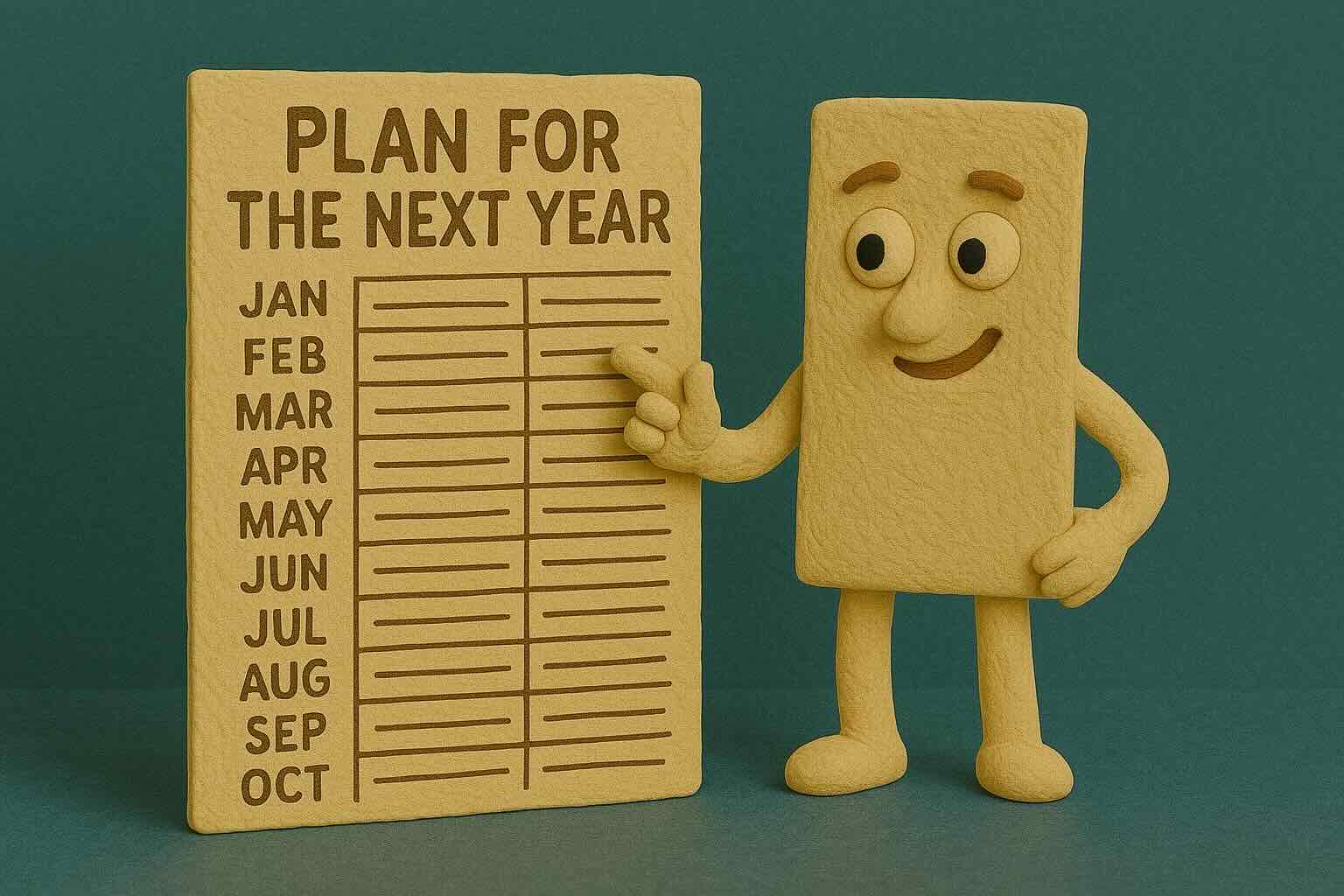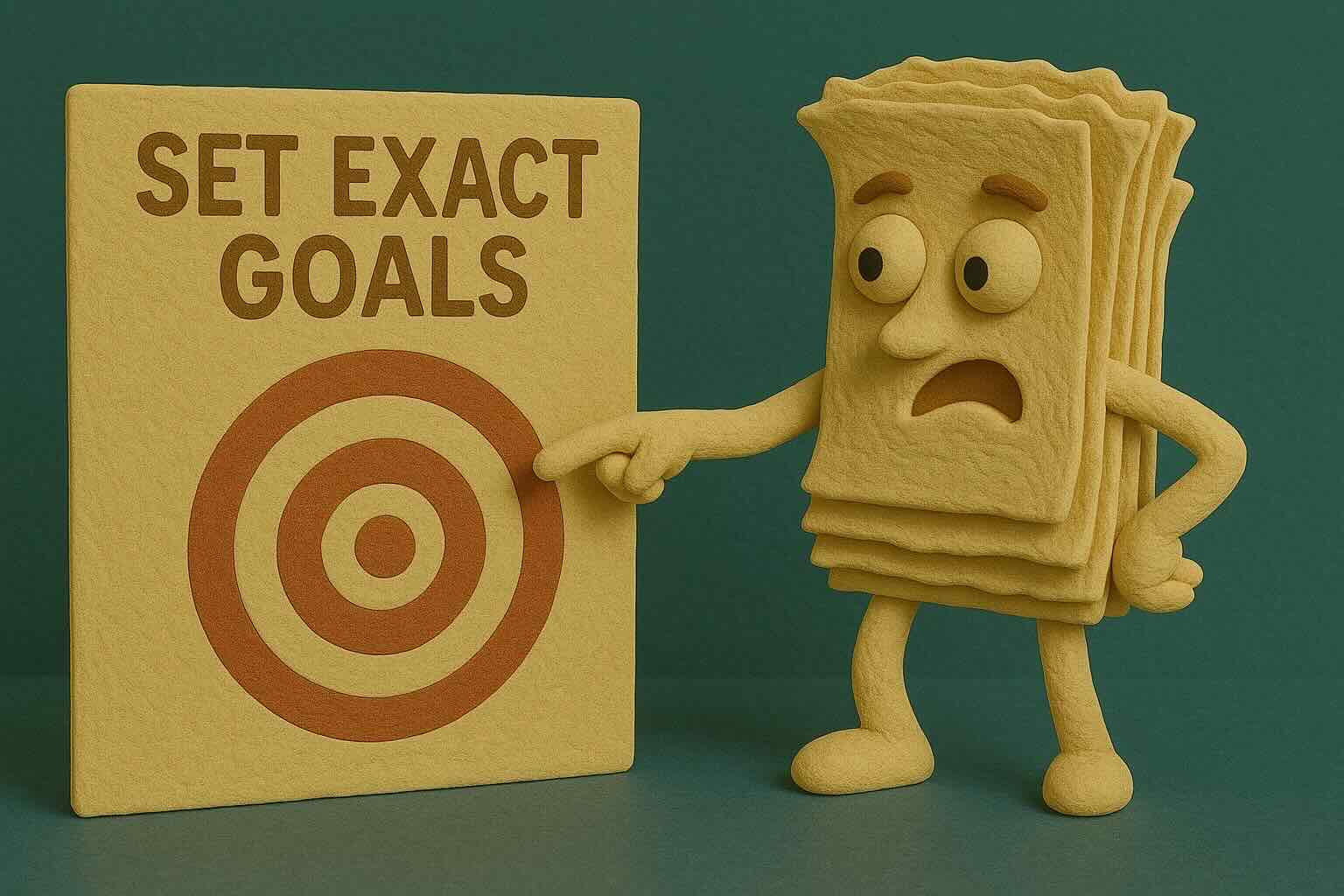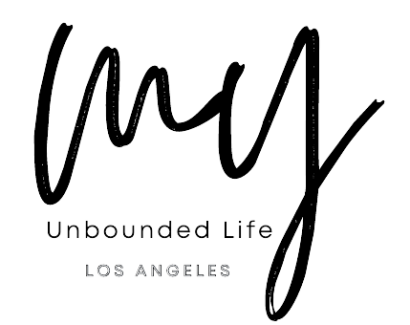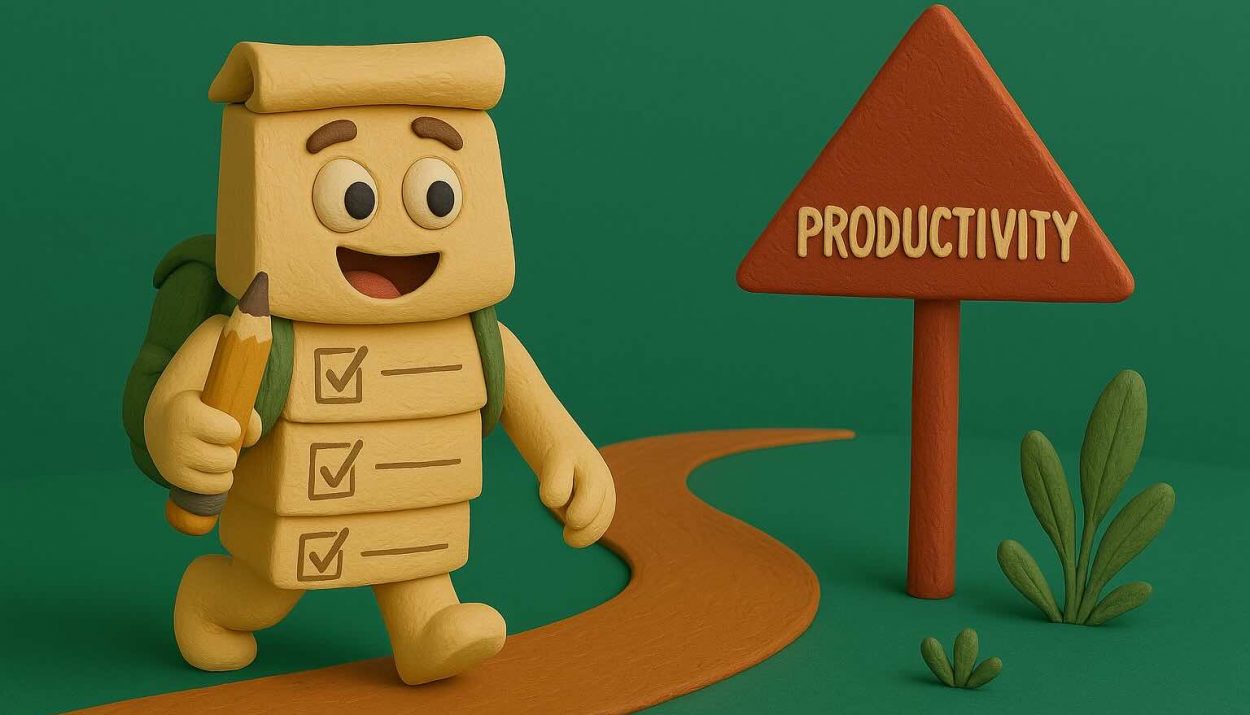The Organized Guest on the “My Unbounded Life” Blog
Hello, dear readers of the “My Unbounded Life” blog! Today, you will read a guest post by the “So List” blog. The blog is dedicated to living a better organized life through lists, checklists, and more. This blog is authored by a personal productivity practitioner with ten years of experience in the field.
What does this experience entail? It includes over 63,000 completed tasks in the to-do app I use, more than 8,700 hours applying the Pomodoro technique, and ~40 quarters planned. Additionally, I hold a bachelor’s degree in management and have practical experience leading software teams of over 20 people.
One might think that personal productivity is not as challenging a topic as management or organizational effectiveness, but it is indeed complex. This complexity often overwhelms people when they try to organize their important tasks into to-do lists.
So, how do you complete tasks without becoming overwhelmed?
What is Productivity?
At its core, productivity is the ability to achieve a goal. To delve deeper, it refers to the rate at which goals are accomplished. However, we may not want to go that deep this time.
You may have also heard about efficiency, which is about how cost-effective your goal’s achievement is. For now, let’s set that aside; there is no efficiency without productivity.
Mistakes to Avoid on the Road to Productivity
People manage various aspects of their lives using models. These are convenient frameworks of ideas to help think about a subject.
When drinking tea, I consider my cup, the boiled water, and the tea leaves. I don’t dwell on the specifics of the cup’s material, the exact chemical formula of water, or the thermal processing of the freshly collected Camellia sinensis leaves that become my tea. While these models are still relevant, they are inconvenient.
Some models or their components are not only inconvenient but also misleading. Here are some misconceptions that can hinder your productivity journey:
- I will handle all my tasks once I become productive.
- I should multitask to complete more work.
- A complex time management system will cover all my needs.
- I should plan every minute of my day.
- I can predict the exact duration of a task.
- I should plan a year ahead.
- I should set specific goals.
- The more time I work, the more I accomplish.
Let’s examine these misconceptions one by one and give practical advice. You not only need to avoid certain pitfalls to produce results but also need to take actionable steps.
I Will Handle All My Tasks Once I Become Productive

No, you won’t. There are several reasons for this. First, there is no limit to the tasks you can conceive as yours. Even if you don’t take on everything that comes your way, new tasks will inevitably arise that you never anticipated.
Another aspect of becoming productive is that it can take years to build an effective personal productivity system. Many of the today’s difficult tasks may no longer be relevant in a year.
Moreover, it’s hard to determine if you are already productive. You may feel productive enough to be calm about your responsibilities while still having an additional task list that you may or may not want to tackle.
I Should Multitask to Complete More Work

It’s some seagull management nonsense. Each time you switch between tasks, you incur a “cost” for that switch. When engaged in focused, deep work, you avoid this cost.
If you pride yourself on rapidly switching between numerous tasks, congratulations — you are paying a high price for it.
However, staying focused on one task is different from what you might initially believe. Sitting at your desk staring at the screen for hours will not make you productive; it goes against how our bodies function.
Research suggests [1] that interruptions can be beneficial to utilize both modes of our brain: analyzing and synthesizing. When focused, your brain analyzes; when relaxed (👋, walking or engaging in other healthy habits), it synthesizes and generates ideas. This explains why we often have insights while in the shower. Maintaining a work-life balance is crucial for productivity.
Furthermore, prolonged sitting is detrimental to your health. As stated in the book “Healthy Programmer” [2]:
Each hour of daily television-viewing is associated with an eleven percent increase in the risk of death.
Some Existing Complex Time Management System Will Cover All My Needs

You might feel that you need a complex personal productivity system instead of just a tool to maximize your peak productivity hours. However, at some point, you may discover that none of the existing time management systems fully meets your needs.
Does Pomodoro seem promising? Perhaps, but it may not work well for medium- to long-term goals, and it lacks mechanisms for notifications. Does GTD seem comprehensive? But do you really need an inbox? Does Eating the Frog sound appealing for a morning person? What if there are too many frogs? Does 12 Week Year look good for medium-term planning? What about daily execution?
The list goes on. The key is to recognize that you are an individual with unique needs, and certain existing productivity approaches may not fit. What you need to do is explore the possibilities and apply tools that meet your requirements. Ultimately, you should aim to develop your own version of a personal productivity system.
I Should Plan Every Minute of My Day

Popular culture often depicts productive people with tightly scheduled days, where every minute is accounted for and no time is wasted during the productive days.
While this may look appealing in movies and books, it is far from reality. People struggle to accurately estimate how much time different activities will take; a one-hour meeting might actually require 75 minutes. If your next meeting is scheduled to last 30 minutes but runs 35 minutes, you are already lagging behind by 20 minutes.
As a result, your plans shift, and excuses arise. Important tasks should have time buffers around them. If you manage to save time, great! Use it to recharge your energy level or engage in other activities that are not time-bound. If you urge for more time spent, that buffer will help you avoid delays and excuses.
I Can Predict the Specific Duration of a Task

This one is my pain point. In software engineering, there are no certain durations, and people often propose “creative” ideas to come up with them. This typically leads to engineers having not enough sleep time as deadlines approach, resulting in rushed, half-finished products. I’m sure you’ve seen this happen multiple times.
People are notoriously poor at predicting how long tasks will take. We often underestimate complexity, overlook potential unexpected events, and are inherently optimistic. Having constant notifications after poorly estimating the required effort makes almost no sense.
What should we do? Not every task needs an estimated duration, and it’s just as acceptable to complete a task the next day as it is today. Set deadlines only when absolutely necessary. For tasks of uncertain duration, periodically ask yourself, “Is it still worth continuing?”
I Should Plan a Year Ahead

Perhaps, but realistically, you can’t. Consider planning your 2020 vacation at the end of 2019 — what could possibly go wrong?
Reality can take unexpected turns. I’m not suggesting extreme changes, but new information and opportunities frequently arise. Ignoring them simply because you have a plan makes little sense.
Still, gather ideas and transform them into a plan when you have enough information and minimal risk. However, don’t wait too long; at some point, it becomes too late to take actionable steps.
I Should Set Exact Goals

Everyone should use SMART goals: children, college students, young adults, adult adults, everyone! I frequently encounter this recommendation in articles and blog posts.
Let’s consider an example. Imagine you’re driving with your family and planning a meal. Here are two alternatives:
- Have exactly one meal at the Italian restaurant “Buono” within the next three hours.
- Have a meal.
The first option is specific, measurable, achievable, relevant, and time-bound. The second one is vague. However, the first option is fragile, while the second is flexible.
What if you want to have two meals? What if the “Buono” restaurant is closed, and you need to go to the Austrian restaurant “Schnitzel”? What if you arrive there after three hours? Does that mean having a meal is no longer relevant?
It’s clear that setting overly exact goals can lead to failure without actual failure. Keep your goals sufficiently precise, but don’t over-optimize them.
The More Time I Work, the More I Accomplish

This fallacy is common among those just beginning their personal productivity journey. Sitting at your desk for 12 hours straight does not equate to productivity. As mentioned earlier, you need to alternate between focused and unfocused states to harness your brain’s true potential.
Additionally, you must maintain your health and routines. Discovering an overwhelming pile of unfinished tasks after several hours of deep work will not bring you satisfaction.
The best advice here is to prioritize your health and establish routines such as regular sleep, meals at consistent times, exercise, and maintaining a clean living space. Reserve time for these activities and plan your most important tasks outside of “service hours”. While it may seem like you have less time for them, you will operate at much higher energy levels.
Conclusion: On Your Road to Increasing Productivity
Personal productivity is a profound topic. The good news is that you don’t need to travel far before reaping its benefits. Start with something specific. For example, if the lack of regular reading is your main challenge, begin with that and don’t attempt to solve all your life’s problems at once.
Apply the famous Pareto principle: focus your efforts where they yield the greatest return.
Summary of Productivity Fallacies
Understanding these common misconceptions can help you navigate your productivity journey more effectively. First, the notion that you’ll handle all tasks once productive is misleading; new tasks will always emerge, making it essential to develop a sustainable system over time. Multitasking is also a fallacy, as it incurs costs with each switch; instead, focus on deep work for greater efficiency.
Complex time management systems might not meet all your needs, so it’s crucial to create your own version tailored to your unique requirements. Planning every minute of your day is unrealistic; instead, allow time buffers around important tasks to manage unexpected changes.
Predicting exact task durations is often inaccurate, so set deadlines only when necessary and remain flexible. Long-term planning can be disrupted by new opportunities, so adapt your plans as needed.
Setting overly exact goals can lead to unnecessary stress and potential failure. It’s important to keep goals flexible enough to adapt to changing circumstances while remaining specific enough to provide direction. Finally, working longer hours doesn’t guarantee more accomplishments; balance focused work with breaks and maintain healthy routines for optimal productivity.
Thank you for reading! Thanks to the “My Unbounded Life” blog for allowing me to contribute this guest post. If you want to explore deeper productivity levels, consider reading the “Advanced Daily Plan” on the “So List” blog.
Happy productivity journey!
List of Links
[1] Andy Hunt, “Pragmatic Thinking and Learning: Refactor Your Wetware”, ISBN 978-1-934356050
[2] Joe Kutner, “The Healthy Programmer: Get Fit, Feel Better, and Keep Coding”, ISBN 9781937785314






